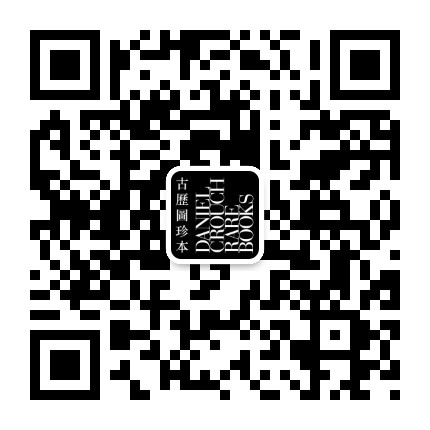
Trade card for the creator of the Royal Observatory's eight-foot telescope
John Bird Mathematical Instrument Maker.
- 作者: BIRD, John
- 出版地: London,
- 出版商: at the Sea Quadrant, near the new-Exchange Buildings in the Strand,
- 发布日期: [from 1748].
- 物理描述: Engraved trade card.
- 方面: 150 by 95mm. (6 by 3.75 inches).
- 库存参考: 17851
笔记
John Bird (1709-1776), eminent mathematical instrument-maker, was known throughout Europe in his lifetime for the accuracy of his instruments, and is allegedly the gentleman responsible for recommending that John Dixon, of the Mason-Dixon Line, be the person sent to St. Helena to make observations of the transit of Venus, and so launching Dixon's international career.
From about 1746, Bird supplied the Royal Observatory with a brass mural quadrant of eight-foot radius and a transit instrument of eight-foot focal length. With these instruments James Bradley, the Astronomer Royal, made a series of observations of the sun, moon, planets, and fixed stars, which was carried on by others after his death. When, in 1776 the Greenwich observations for 1765 to 1774 were published, Bird's instruments were still in use and their accuracy so exact that "the place of any heavenly body may be always found by them within ten seconds of a degree, both in Longitude and Latitude, and generally much nearer" (Nevil Maskelyne).
From about 1746, Bird supplied the Royal Observatory with a brass mural quadrant of eight-foot radius and a transit instrument of eight-foot focal length. With these instruments James Bradley, the Astronomer Royal, made a series of observations of the sun, moon, planets, and fixed stars, which was carried on by others after his death. When, in 1776 the Greenwich observations for 1765 to 1774 were published, Bird's instruments were still in use and their accuracy so exact that "the place of any heavenly body may be always found by them within ten seconds of a degree, both in Longitude and Latitude, and generally much nearer" (Nevil Maskelyne).
参考书目
- BM Heal 105.10
/
 地图
地图  地图集
地图集  珍本
珍本  版画
版画  天文仪器
天文仪器 









